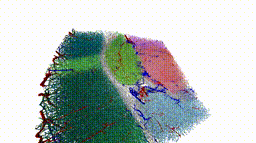# -*- coding: utf-8 -*-
"""
NPY
===
IO interface to numpy arrays.
"""
__author__ = 'Christoph Kirst <christoph.kirst.ck@gmail.com>'
__license__ = 'GPLv3 - GNU General Pulic License v3 (see LICENSE.txt)'
__copyright__ = 'Copyright © 2020 by Christoph Kirst'
__webpage__ = 'http://idisco.info'
__download__ = 'http://www.github.com/ChristophKirst/ClearMap2'
import numpy as np
import ClearMap.IO.Source as src
#import ClearMap.IO.FileUtils as fu
###############################################################################
### Source classe
###############################################################################
[docs]class Source(src.Source):
"""Numpy array source."""
def __init__(self, array = None, shape = None, dtype = None, order = None, name = None):
"""Numpy source class construtor.
Arguments
---------
array : array
The underlying data array of this source.
"""
super(Source, self).__init__(name=name);
self._array = _array(shape=shape, dtype=dtype, order=order, array=array);
def __getattr__(self, name):
#numpy attributes
if name != '_array' and hasattr(self, '_array') and hasattr(self._array, name):
return getattr(self._array, name);
else:
raise AttributeError('Not such attribute %r!' % name);
#def __del__(self):
# self._array = None;
@property
def name(self):
return "Numpy-Source";
@property
def array(self):
"""The underlying data array.
Returns
-------
array : array
The underlying data array of this source.
"""
return self._array;
@array.setter
def array(self, value):
self._array = _array(value);
@property
def shape(self):
"""The shape of the source.
Returns
-------
shape : tuple
The shape of the source.
"""
return self._array.shape;
@shape.setter
def shape(self, value):
self._array.shape = value;
@property
def dtype(self):
"""The data type of the source.
Returns
-------
dtype : dtype
The data type of the source.
"""
return self._array.dtype;
@dtype.setter
def dtype(self, value):
self._array = np.asarray(self._array, dtype=value)
@property
def order(self):
"""The order of how the data is stored in the source.
Returns
-------
order : str
Returns 'C' for C contigous and 'F' for fortran contigous, None otherwise.
"""
return order(self.array);
@order.setter
def order(self, value):
self._array = np.asarray(self._array, order = value)
@property
def element_strides(self):
"""The strides of the array elements.
Returns
-------
strides : tuple
Strides of the array elements.
Note
----
The strides of the elements module itemsize instead of bytes.
"""
return tuple(s // self._array.itemsize for s in self._array.strides)
@property
def offset(self):
"""The offset of the memory map in the file.
Returns
-------
offset : int
Offset of the memeory map in the file.
"""
if self._array.base is not None:
return np.byte_bounds(self._array)[0] - np.byte_bounds(self._array.base)[0];
else:
return 0;
### Parallel processing
[docs] def as_virtual(self):
#TODO: convert to shared memory array ?
return self;
[docs] def as_real(self):
return self;
[docs] def as_buffer(self):
return self._array;
### Data
def __getitem__(self, *args):
return self.array.__getitem__(*args);
def __setitem__(self, *args):
self.array.__setitem__(*args);
#class Array(np.ndarray):
# """Array wrapper around numpy ndarray."""
#
# def __new__(cls, array):
# obj = np.asarray(array).view(cls)
# #obj.order = order(obj);
# return obj
#
# def __array_finalize__(self, obj):
# if obj is None: return
# #self.order = getattr(obj, 'order', None)
#
# def name(self):
# return "Source-Numpy";
#
# def array(self):
# return self.view(np.ndarray);
#
# @property
# def order(self):
# return order(self);
#
# @property
# def array_strides(self):
# return tuple(np.array(self.strides, dtype = int) / self.itemsize);
#
# def __str__(self):
# if self.shape is not None:
# shape = '%r' % ((self.shape,));
# else:
# shape = '';
#
# if self.dtype is not None:
# dtype = '[%s]' % self.dtype;
# else:
# dtype = '';
#
# if order(self) is not None:
# _order = '|%s|' % order(self);
# else:
# _order = '';
#
# array = super(Array, self).__str__();
# if len(array) > 100:
# e = array[100:].find('\n');
# if e != -1:
# array = array[:100 + e] + '...';
# if len(array) > 0:
# array = '\n' + array;
# else:
# array = '';
#
# return 'Array' + shape + dtype + _order + array
#
# def __repr__(self):
# return self.__str__();
###############################################################################
### Functionality
###############################################################################
[docs]def order(array):
"""Returns the contigous order of an array.
Arguments
---------
array : ndarray
Returns
-------
order : 'C', 'F', None
"""
if isinstance(array, src.Source):
return array.order;
elif isinstance(array, np.ndarray):
if array.flags['C_CONTIGUOUS']:
return 'C'
elif array.flags['F_CONTIGUOUS']:
return 'F'
else:
return None;
else:
return None;
###############################################################################
### IO Interface
###############################################################################
[docs]def is_numpy(source):
if isinstance(source, (Source, np.ndarray, list, tuple)):
return True;
#elif isinstance(source, str): # and fu.file_extension(source) == 'npy':
# return True;
else:
return False;
[docs]def read(source, slicing = None, as_source = None, as_array = None, processes = None, **kwargs):
if isinstance(source, (list, tuple)):
source = np.array(source);
if isinstance(source, Source):
if slicing is not None:
source = source.__getitem__(slicing);
if as_array:
return source.array
else:
return source;
elif isinstance(source, np.ndarray):
if slicing is not None:
source = source.__getitem__(slicing);
if as_source:
return Source(array = source);
else:
return source;
# elif isinstance(source, str): # and fu.file_extension(source) == 'npy':
# source = np.load(source);
# if slicing is not None:
# source = source.__getitem__(slicing);
# if as_source:
# return Source(array = source);
# else:
# return source;
else:
raise ValueError('The source is not a valid numpy source!')
#TODO: add processes kewword for parallel writing
[docs]def write(sink, data, slicing = None, **kwargs):
if slicing is None:
slicing = ();
if sink is None:
return data.__getitem__(slicing);
if isinstance(sink, (src.Source, np.ndarray)):
sink.__setitem__(slicing, data);
return sink;
# elif isinstance(sink, str): #and fu.file_extension(sink) == 'npy'
# if slicing != ():
# if not fu.is_file(sink):
# raise ValueError('Cannot write slice to a not existing file %s!' % sink);
# memmap = np.lib.format.open_memmap(sink);
# memmap.__setitem__(slicing, data);
# else:
# np.save(sink, data);
# return sink;
else:
raise ValueError('The sink is not a valid numpy sink!')
[docs]def create(shape = None, dtype = None, order = None, array = None, as_source = True, **kwargs):
"""Create a numpy array.
Arguments
---------
shape : tuple or None
The shape of the memory map to create.
dtype : dtype
The data type of the memory map.
order : 'C', 'F', or None
The contiguous order of the memmap.
array : array, Source or None
Optional source with data to fill the numpy array with.
as_source : bool
If True, return as Source class.
Returns
-------
array : np.array
The numpy array.
Note
----
By default numpy arrays are initialized as fortran contiguous if order is None.
"""
array = _array(shape=shape, dtype=dtype, order=order, array=array)
if as_source:
return Source(array=array);
else:
return array;
###############################################################################
### Helpers
###############################################################################
def _order(array):
return order(array);
def _array(shape = None, dtype = None, order = None, array = None):
"""Create a numpy array.
Arguments
---------
shape : tuple or None
The shape of the memory map to create.
dtype : dtype
The data type of the memory map.
order : 'C', 'F', or None
The contiguous order of the memmap.
array : array, Source or None
Optional source with data to fill the memory map.
Returns
-------
array : np.ndarray
The array.
"""
if isinstance(array, (list, tuple)):
array = np.asarray(array, order=order, dtype=dtype);
if isinstance(array, np.ndarray):
shape = shape if shape is not None else array.shape;
dtype = dtype if dtype is not None else array.dtype;
order = order if order is not None else _order(array);
if shape != array.shape:
raise ValueError('Shape %r and array shape %r mismatch!' % (shape, array.shape));
if dtype != array.dtype or order != _order(array):
array = np.asarray(array, order=order, dtype=dtype);
else:
if shape is None:
raise ValueError('Cannot create array without shape!');
array = np.zeros(shape, dtype=dtype, order=order);
return array;
###############################################################################
### Tests
###############################################################################
def _test():
import numpy as np
import ClearMap.IO.NPY as npy;
#reload(npy);
s = npy.Source(array=np.zeros((5,7)));
print(s);
import ClearMap.IO.Slice as slc
t = slc.Slice(source= s, slicing= (1,));
print(t);
v = t.as_virtual()
print(v);
x = np.ones(250*1000*1000)
xs = npy.Source(array=x);
print(xs)
del x
del xs

 Source
Source


